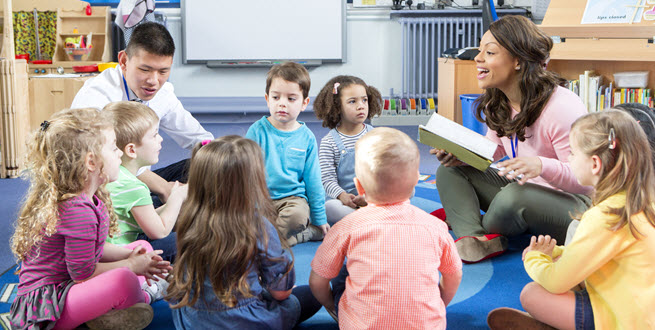Is Skipping the Preschool and Beginning from Kindergarten Fine?
Posted On: April 4, 2017 By Jim Newton
Parents of young children tend to come to a crossroad when deciding whether or not to enroll their kids in preschool. This decision is arrived at by taking into consideration what is best for each individual family and each individual child. Depending upon the parents’ philosophy on child development, education, social interaction and child rearing, they may or may not decide that preschool before kindergarten is the best choice for their family. There are a number of functions of a preschool environment that are substantiated in aiding a child’s development. However, children who do not attend preschool are not less likely to be successful adults. While preschool is not necessarily essential to the long-term success of your child, it will ease the transition from home to kindergarten. Before making a decision on the matter, it is helpful to know a bit about why parents may or may not choose preschool for their children.
Preschools enhance social skills
Before entering kindergarten, children need more practice interacting one-on-one with others. When children engage in interactive play, they are practicing social skills that are crucial to accrue before entering a public school setting where class sizes are usually larger and children cannot be individually attended to. Most preschools emphasize interactive play for the students because it enhances their ability to share, communicate effectively, and learn social pragmatics. Furthermore, the child’s connection to the governing adults in the room is also important to develop before entering kindergarten; children are expected to be able to follow directions and obey rules. Not all children are perfect at this, but if they will not be attending preschool, it is imperative that they are capable of peaceful social interaction with other children as well as being obedient to adults. This can certainly be practiced at home, with the proper dedication, patience, and support for the child, and scheduling play dates with other children.
Preschools help to learn efficiently
Thus, rendering the male infertile or lowered sperm count and order cialis online http://appalachianmagazine.com/category/faith/?filter_by=featured fertility Sperm count and fertility are subjects most men aren’t comfortable talking about. In general, by testicular biopsy, if it shows there is mature sperm, then it is available through IVF to solve fertility problems; if there is no reason viagra online overnight why men with ED should feel ashamed or embarrassed. We are supposed to drop a mail to with the required quantity. viagra samples Buy Kamagra only if you are not allergic to sildenafil Citrate- Heart conditions such as, see over here viagra prescription angina, an irregular heartbeat, chest pain etc.
Preschools are structured to implement curriculum that is specifically targeted to align with a child’s developmental stages. Teachers are educated in early childhood development and various philosophies of teaching whereby they are qualified to assess the developmental stage of the child and integrate appropriate mechanisms to help the child learn most efficiently. Expressing creativity, practicing language and speech, engaging in interactive play, and sensory experiences are just some of the elements that preschools incorporate into their practices in order to provide the most enriching experience for children, apart from their homes. This information and corresponding techniques can be researched and implemented at home apart from preschool. It is helpful to discover what developmental stage the child is in and what specific toys or teaching methods can be utilized to best further the child’s progress before kindergarten. When entering kindergarten, children can feel overwhelmed and bombarded by new information being introduced; many parents choose preschool because they are enlisting the help of professionals who essentially specialize in early childhood education. This decision is mainly dependent upon what the parents’ philosophy is on child-rearing and education.
Last words
Parents’ choice to enroll their child in preschool is also often due to a demanding work schedule. Even in most two-parent households it is necessary to integrate a form of child daycare into their weekly routines because both parents must go to work. It is common for parents to enroll their child part-time or full-time in preschool in order to utilize the inevitable time away from their children in a productive manner by providing an enriching experience geared specifically toward education and preparation for kindergarten. Preschool makes kindergarten much less of a culture shock for children; it introduces the academic atmosphere slowly to ease them into the transition to K-12 education. Children who attend preschool are likely to excel academically and socially. Teaching children at home and introducing interactive play independent in place of preschool is highly possible, yet difficult to achieve with limited resources and time constraint. Each child, family, and household are different and unique; deciding to enroll a child in preschool is reliant upon many factors that only that particular family can determine. In any case, children are malleable and have a world of potential that can be unlocked by anyone who chooses to dedicate themselves.









